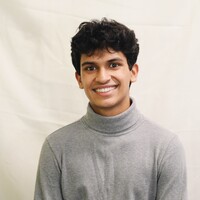Assessing the Perception of Communities Towards Traditional Healers and Analyzing their Relationship with Biomedical Practitioners in Orthopedic Care in Northern Tanzania
My research assesses the perceptions of local communities towards traditional healers and analyzes the relationship between traditional healers (individuals using alternative forms of medicine for treatment, typically without formal certification) and biomedical practitioners in orthopedic care in Northern Tanzania.
I designed a mixed methods study utilizing interviews and surveys composed of open-ended (short answer), multiple-choice, polar, and Likert scale questions. The setting of my project was the Kilimanjaro Christian Medical Centre (KCMC) orthopedic department (ward and outpatient clinic center) and the participants in my study included ward inpatients and clinic outpatients. From June 15, 2022 to July 15, 2022, I conducted 8 interviews and collected 111 survey responses. For data analysis, I performed a thematic analysis of the interviews and a statistical (descriptive, regression), thematic, & graphical analysis using Excel, Analysis ToolPak, and Tableau for the surveys.
I arrived at the conclusion that traditional healers do not significantly limit the effectiveness of care offered by biomedical doctors at KCMC and in Northern Tanzania due to their lack of education, deceptive nature, and unscientific approach. However, the healers are acknowledged to play a role in culture and low-cost and accessible treatment in certain societies outside of Northern Tanzania, implying that Northern Tanzania is unique and unconventional for its severe distrust of healers. Traditional healers are known to treat orthopedic injuries but are NOT trusted or considered more effective than medical doctors in orthopedic care. In comparison, biomedical doctors (at KCMC and beyond) have an incredibly positive reputation and receive consistent praise for their hardworking, professional, and well-educated nature, as well as their effective and scientific treatment. Overall, there was limited support for collaboration between healers and doctors due to shared concerns over the healers' self-interested nature, unverified treatments, and limited possible contributions to the partnership. In Northern Tanzania, there is strong and continually growing support for modern medicinal practices, and future research should compare this study's results with hospitals of similar caliber and stature (i.e. Muhimbili, Bugando) or household districts across regions (for a new and unique sample).

Comments